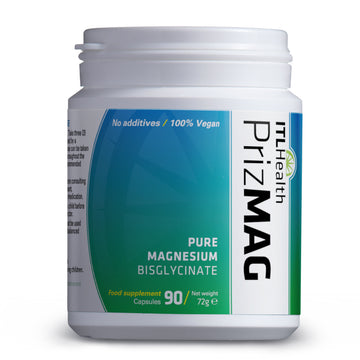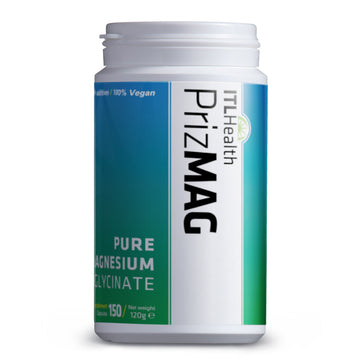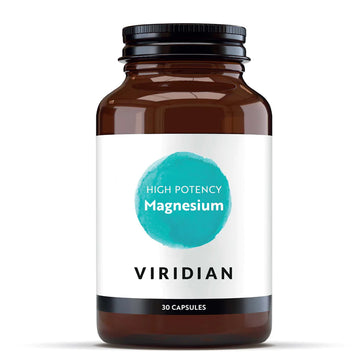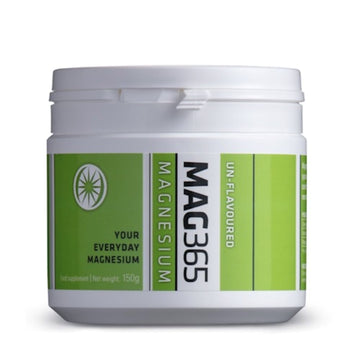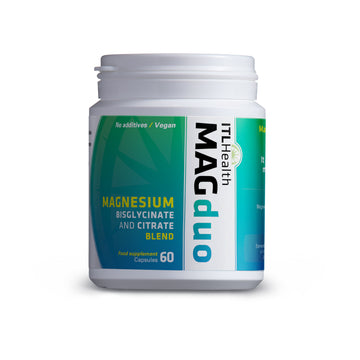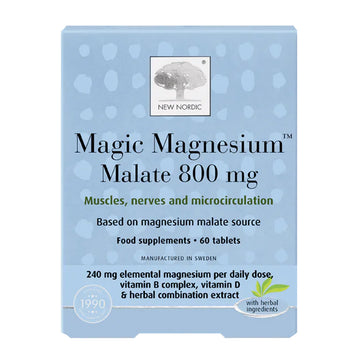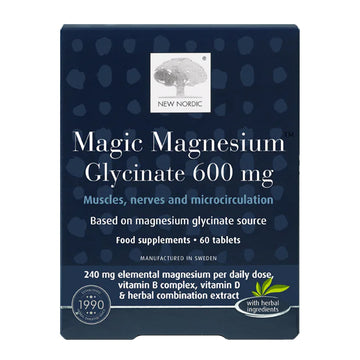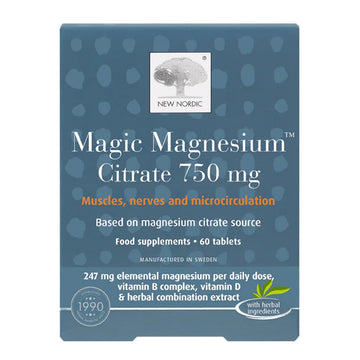In the ever-evolving landscape of nutritional supplements, magnesium has taken centre stage, gathering widespread attention for its potential health benefits.
This essential mineral plays a crucial role in various bodily functions, ranging from muscle and nerve function to blood sugar regulation and bone health. As our understanding of magnesium's significance deepens, so does the surge in demand for magnesium supplements.
In this blog post, we will delve into the increasing popularity of magnesium supplements and unravel the distinct characteristics of different forms, including Magnesium Citrate, Magnesium Bisglycinate, Magnesium Malate, and Magnesium Taurate.
Why the Surge in Popularity?
-
Modern Diets and Magnesium Deficiency
Modern diets often lack sufficient magnesium due to processed foods, depleted soil, and refined grains. As a result, many individuals may experience magnesium deficiency, leading to various health issues. Recognising this gap in nutrition, people are turning to magnesium supplements to bridge the shortfall.
-
Stress and Lifestyle Factors
Stress, busy lifestyles, and high caffeine intake can deplete magnesium levels in the body. With increasing awareness of the impact of stress on overall well-being, individuals are seeking magnesium supplements as a natural way to support relaxation and stress management.
-
Diverse Health Benefits
Magnesium is involved in over 300 enzymatic reactions in the body, influencing everything from energy production to muscle function. Research suggests that magnesium supplementation may contribute to better sleep, improved mood, and cardiovascular health. As news of these potential benefits spreads, so does the interest in magnesium supplements.
Understanding the Different Types
Form: This form of magnesium is bound to citric acid.
Benefits: Known for its excellent absorption and bioavailability, making it a popular choice for those looking to address magnesium deficiency.
Use: Often recommended for promoting bowel regularity and as a general magnesium supplement.
Form: Chelated form of magnesium bound to glycine.
Benefits: Gentle on the stomach and highly absorbable. Suitable for individuals with sensitive digestive systems.
Use: Commonly chosen for its bioavailability and less likelihood of causing gastrointestinal discomfort.
Form: Magnesium combined with malic acid.
Benefits: Linked to improved energy production and reduced muscle pain and tenderness.
Use: Those seeking to support energy levels and reduce muscle discomfort may opt for magnesium malate.
Form: Magnesium bound to taurine.
Benefits: Taurine may enhance the cardiovascular effects of magnesium, making this form potentially beneficial for heart health.
Use: Individuals looking to support cardiovascular function may choose magnesium taurate.
Key Differences and Choosing the Right Type
- Absorption Rate: Magnesium Citrate is renowned for its high absorption rate, while Bisglycinate offers a gentler option for those with digestive sensitivities.
- Specific Health Goals: Tailor your choice based on your health objectives. For example, Magnesium Malate for energy support or Magnesium Taurate for cardiovascular health.
- Individual Tolerance: Consider personal preferences and tolerances. Some may prefer a supplement that is easier on the stomach, such as Bisglycinate.
Magnesium supplementation can be a valuable addition to a well-balanced diet, providing support for various bodily functions. Each magnesium type – Citrate, Bisglycinate, Malate, and Taurate – offers distinct advantages, catering to specific health concerns. Understanding these differences allows you to make informed choices based on your unique needs and health goals.



